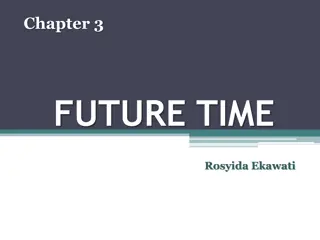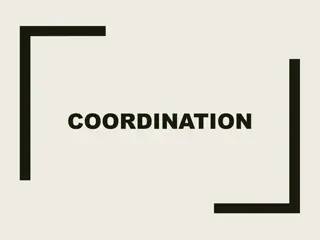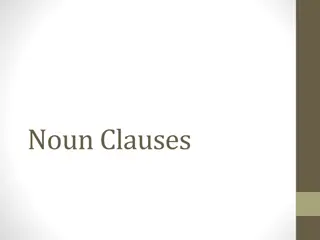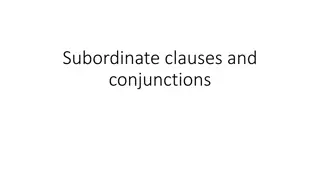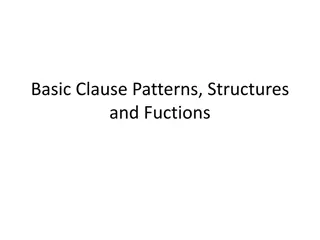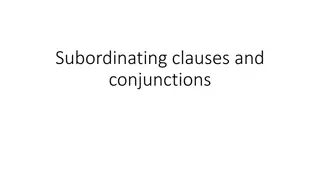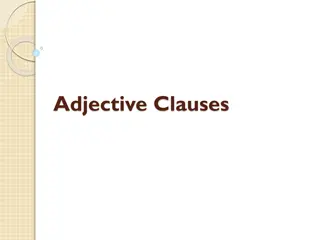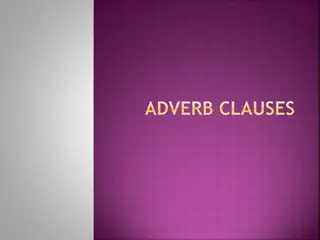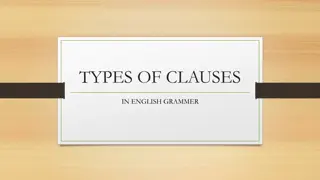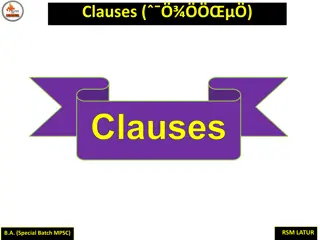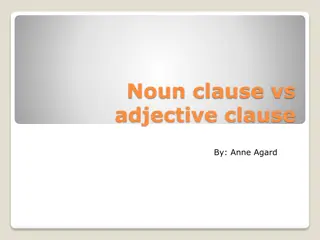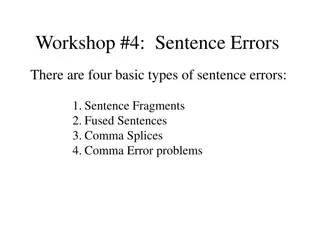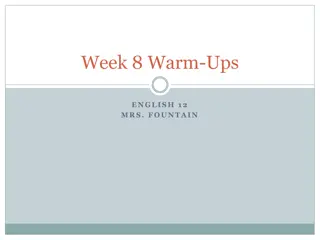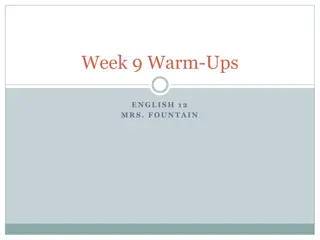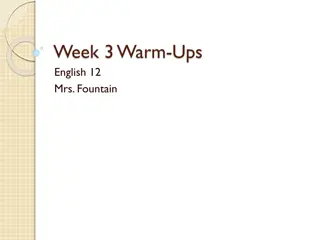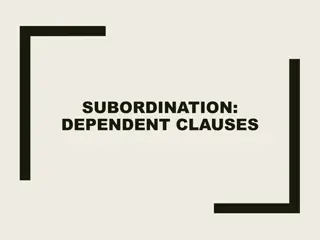Clauses and Reduction in Sentence Structure
Learn about the role of clauses as subjects in sentences, the use of anticipatory "It," adjectives of urgency, and verbs in the subjunctive mood. Explore reductions in that clauses and commands, including reported speech variations. Discover how to make requests for action and how they are reported in indirect speech.
Download Presentation

Please find below an Image/Link to download the presentation.
The content on the website is provided AS IS for your information and personal use only. It may not be sold, licensed, or shared on other websites without obtaining consent from the author.If you encounter any issues during the download, it is possible that the publisher has removed the file from their server.
You are allowed to download the files provided on this website for personal or commercial use, subject to the condition that they are used lawfully. All files are the property of their respective owners.
The content on the website is provided AS IS for your information and personal use only. It may not be sold, licensed, or shared on other websites without obtaining consent from the author.
E N D
Presentation Transcript
CHAPTER 7 P.317-327
Clauses as subjects of sentences The noun clause takes a singular verb. The noun clause must begin with a connecting word.
Clauses as subjects of sentences
Anticipatory it occupies the Subject position and "anticipates" a Subject that has been postponed. For example, It's true that she has finished with Mike. In this example the Subject is It, which substitutes for the extraposed clause that she has finished with Mike. Cf. the version with extraposition That she has finished with Mike is true.
it + adjectives of urgency + verbs in the subjunctive mood It is necessary that we arrest him.
Reduction of that clauses in the subjunctive mood Its important that you call. Its important for you to call. It was essential that he have the money. It was essential for him to have the money. Anticipatory it + adjective + noun phrase Infinitive phrase [to + simple form of the verb]
Reduction of commands Shut the door! Sit down! Go to your room!
Reduction of commands Reported speech Infinitive phrase She said that we should stop it. She said to stop it. She told us that we should finish the work. She told us to finish the work. She told us that we should do a good job. She told us to do a good job.
Request for action Will you help me? Can you give me a hand with that? Can I borrow your dress?
Request for action Reported speech Infinitive phrase She asked me if I can help her. She asked me to help her. She asked me whether I could lend her 5$. She asked me to lend her 5$.
Request for permission Could I leave early? May I come in?
Request for permission Reported speech Infinitive phrasee John asked if he could leave early. John asked to leave early.
Reduction of embedded questions Should I come early? Which pages should I read?
Yes/no questions Embedded question Infinitive phrase Jay asked if he should come early Jay asked whether to come early.
Information questions Embedded question Infinitive phrase I asked her which pages I should read. I asked her which pages to read.



